Autism and Siblings: The Unsung Heroes
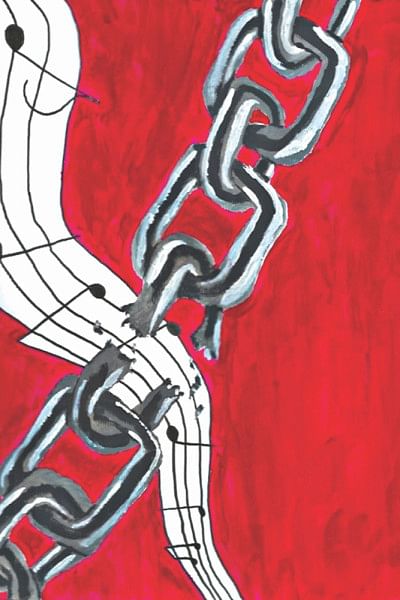
When my twins were in their early months, during our visits to the paediatrician, I remember his concern about my daughter who appeared to be frail and weak. On the other hand, he would give my son a cursory glance and a brief check-up before reconfirming how healthy he was. Interestingly, my son started showing signs of autism from an early age, which gradually became worse while my daughter was growing up to be a neurotypical child.
Siblings of autistic children are an interesting lot. Some of the characteristics of this group have much in common. This realisation came from sharing experiences over the years with other families who have children with autism. This write-up is really about my daughter and siblings who may have similar experiences.
***
I remember the time when my daughter would have play dates over to our house from her Reception class (KG-1 equivalent). When I would pick her and her friends up from school, she would surprise me with how assertively she would tell her friends "You better be good to my brother." Her hapless friends would be at a loss as they did not understand why they needed such a warning. I guess even my daughter didn't fathom what that meant. It was probably more of a gut feeling that her brother was different and that she needed to protect him from her friends who would not understand him as well as she did.
Over time, my daughter became an integral part of my son's ABA (Applied Behavioural Analysis) behavioural therapy which took place at our home for three years while she was in her Nursery Reception Year 1 (age 3-6) years. ABA is a therapy used to help children with autism and learning difficulty to help with learning and to encourage positive behaviour. The therapists would involve the whole family during these sessions whenever possible. My daughter was the most useful member of the family, taking part in structured and unstructured behavioural techniques, like turn-taking and sibling peer play. She learnt early how to help, manage and live with her brother's unique challenges. There were many nights she lay awake along with the family when he was having a bad night, and still managed to go to school the next day. She learnt to hide objects from her brother either to keep him safe or to protect her things or homework from being destroyed.
Her secondary school chose charities every year identified by students to contribute to. The pupils were expected to convince the school why a particular charity should be chosen. Upon entering her teenage years, my daughter worked hard, pitching and giving speeches to convince the school why the National Autistic Society should be chosen, and she was successful. She helped raise funds through school activities over the years, which were then channelled to the National Autistic Society.
It was around this time she wrote the accompanying poem about her brother, reflecting how difficult life must be for him and, at the same time, highlighting his strengths. This was entered into a poem competition for which she won the first prize. The prize consisted of a bunch of books to her delight as she is a voracious reader.
When it was time for her to choose a subject for her university, psychology seemed to be the natural choice. To quote from her personal statement sent to universities: "I remember watching as my twin brother rocked back and forth in agony, hitting his head with his hands. By the time we both turned three, these episodes became a regular occurrence, as the signs of autism became more pronounced. I was too young to realise what autism meant, but I was frustrated, wondering why I could not understand someone I loved so much. It is difficult to understand the disorder as there is a barrier between people with and without autism—the ability to communicate. My experience with my brother also sparked my curiosity about the spectrum of human behaviour. I wondered what could cause people to act in certain ways, and in the case of my brother, how development, as well as the neurological make-up, can affect behaviour. For this reason, developmental and abnormal psychology became my favourite fields."
As she happens to be a fine artist, she tried to depict her perception of the world that her brother may be experiencing day in and day out in a piece of artwork. The colour red represents how noisy, hectic and unbearable the world is around him. The chains confining and trapping him in his non-verbal world, while he is trying to break free. The music notes flowing beautifully to keep him calm, reflecting his love of music.
Siblings play an important role in the world of autism; they are the unsung heroes. They would normally take the back seat just like my daughter, not expecting much, and helping where they can, so that the family can get on with coping with the struggles of autism. She certainly is my hero.
***
My Brother Ayman
I have a brother,
His name is Ayman,
There are many things he can't do,
Yet there are many that he can.
He can't talk, but he can smile,
He will listen, even if it takes a while,
With a face like an angel,
Innocence is his style.
The world he finds hard to understand,
Words mean nothing to him,
Music is his life,
In his own way he can sing.
Although he may have drawbacks many,
He still stands brave and tall,
He continues to learn slow and steady,
And is the best brother of them all.
Poem written by Antara Mirza at the age of 11.
Nusrat Mirza is involved with special educational needs, especially for autism, both in the UK and in Bangladesh.



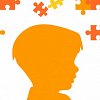
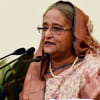
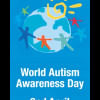
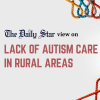
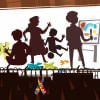


Comments